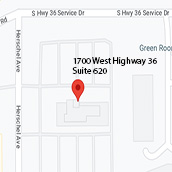What Are The Most Common Types of Personal Injury Cases
You might have a traumatic experience at some point, and (after your emotions calm) you might find yourself wondering whether what happened to you might justify a personal injury lawsuit. There are many reasons to seek a remedy for the harm you experienced. However, a personal injury lawyer can explain a proper evaluation of whether or not you should pursue justice in a court of law usually requires the services of a skilled legal counselor.
The Most Common Reasons People Sue for Personal Injury
Here, in order of severity, are some of the most common types of personal injury lawsuits:
- Wrongful Death. Nothing can restore the presence of a loved one whose life was cut short by the actions or neglect of another. Should any of the causes of action listed below result in the loss of life, the suit is elevated to a wrongful death case.
- Medical Malpractice. A patient is by definition at the mercy of medical providers. When it seems that the trust between patient and provider is violated by accident, carelessness or malice, a suit may be warranted.
- Vehicular Accident. This is one of the most common sources of personal injury suits. A momentary lapse of awareness or of judgment can result in a life of impairment. Don’t you think this deserves financial compensation?
- Workplace Liability. The literal and institutional safety nets established to safeguard workers do not always succeed in protecting the well-being of employees.
- Property Liability. This is a broad category that might include falling, suffering an animal bite or enduring some accident in a place you do not call home.
- Product Liability. Things do not always work as they should. When products cause injury or destruction, the manufacturer may have liability for the failure.
The Proper Course of Action When You Are Injured
Depending on the type of injury and circumstances—say, if you were in a car accident—you may need to involve the police. Make sure to get accident reports and the names of responding officers. The next thing you should do when injured (or the first thing, if calling the police was not necessary) is to get medical help.
You will want to keep copies of all diagnostic and treatment documents, as well as copies of any prescriptions ordered. It is definitely a good idea to consult a personal injury attorney, explain the circumstances and present the documentation you have obtained. Whether the counselor simply provides peace of mind or offers needed legal advice, you will have protected your interests.






